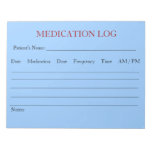Unfortunately, though, the information you find online can be correct, almost correct, or totally false - - and you have no way of knowing which is which. That's because most online sites don't include documentation on their web pages.
Genealogy is a fascinating hobby that requires the skills of a detective and the scientific techniques of a forensic analyst. It's all about proving the connection from one generation to the next. You can guess about the connection, but until proven they remain guesses (albeit it good guesses).
So, how do you avoid falling into the "no source materials" online trap?
If a website has information about your family but no sources, you can either
1. Contact the site owner and ask about sources
2. Use the site info as a springboard for your own research.
If you've very lucky, the site owner will have sources for the information posted on the site. If not, you can still use the information in your own search. Here's an example:
If the site says your great-great-grandfather served in the Civil War, but there's no proof, you can begin searching Civil War records yourself. If you have the state where he was born, begin looking in Civil War records associated with that state. If you don't, use a site like the Soldiers and Sailors system (see resource below), enter the soldiers name and begin the search. If he was in the Civil War, you should find his records here.
Another example. Let's say the website has marriage information for an ancestor. Where can you go to prove it? Begin with where the ancestor lived and start your search in state archives, state websites, or sites like FamilySearch.org. It's possible you'll find exactly what you're looking for at an official site, or you may have to write or call a courthouse in the county where the ancestor lived.
The bottom line, here, is to use whatever information you find as a foundation and begin building on it with proof. Otherwise, you'll just copy down the same information everyone else has copied, and before long no one will know what's really true.






No comments:
Post a Comment